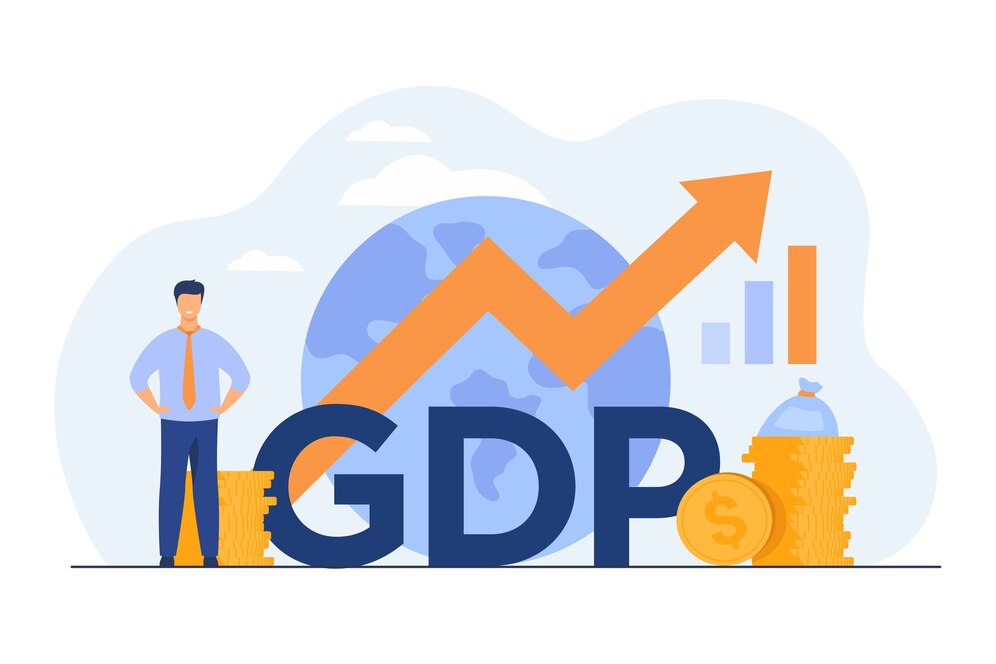GDP full form: Gross Domestic Product

GDP Full Form and Measuring Economic Pulse
In the intricate web of economic indicators, few metrics hold as much significance as GDP. The acronym GDP, widely recognized and discussed, serves as a key barometer of a nation’s economic health and prosperity. The full form of GDP is “Gross Domestic Product.” In this article, we will delve into the GDP full form, explore its components, and understand why it is a fundamental measure for assessing a country’s economic performance.
Deciphering the Full Form: Gross Domestic Product
The acronym GDP stands for “Gross Domestic Product.” GDP is a critical economic indicator that quantifies the total value of all goods and services produced within a country’s borders over a specific period. It serves as a reflection of a nation’s economic output and productivity.
Components of GDP
GDP is calculated by summing up the value of various economic activities, including:
- Consumption: The total expenditure by households on goods and services, from groceries to healthcare and entertainment.
- Investment: Capital expenditures by businesses, including spending on equipment, construction, and research and development.
- Government Spending: The total expenditures made by the government on public services, infrastructure, defense, and other programs.
- Net Exports: The difference between a country’s exports (goods and services sold to other nations) and imports (goods and services purchased from other nations).
Calculating GDP
GDP can be calculated using three different approaches:
- Production Approach: This method calculates GDP by summing the value added at each stage of production in the economy.
- Income Approach: This approach calculates GDP by summing all the incomes earned in the economy, including wages, profits, rents, and taxes minus subsidies.
- Expenditure Approach: This method calculates GDP by summing all the expenditures made in the economy on consumption, investment, government spending, and net exports.
The Significance of GDP
GDP is much more than just a number; it serves as a vital economic indicator with several implications:
- Economic Growth: Positive GDP growth signifies economic expansion and increased prosperity, while negative growth can indicate recession.
- Policy Implications: Governments and policymakers use GDP data to formulate economic policies, from fiscal stimulus to interest rate adjustments.
- International Comparisons: GDP allows for comparisons between countries’ economic performances, helping investors and policymakers make informed decisions.
- Standard of Living: GDP per capita (GDP divided by the population) offers insights into the average income and standard of living of a country’s citizens.
- Business Decisions: Businesses use GDP data to make decisions about investments, expansions, and market strategies.
Limitations of GDP
While GDP is a valuable metric, it has limitations:
- Neglect of Distribution: GDP doesn’t account for income inequality or the distribution of wealth within a country.
- Quality of Life: It doesn’t consider non-economic factors such as environmental sustainability, health, education, and overall well-being.
- Informal Economy: GDP may not accurately capture informal or underground economic activities.
- Social Progress: It doesn’t measure social progress, cultural values, or happiness.
Beyond GDP: Supplementary Measures
To address the limitations of GDP, supplementary measures like Gross National Income (GNI), Human Development Index (HDI), and Genuine Progress Indicator (GPI) have been developed to provide a more comprehensive view of well-being and development.
Conclusion
The GDP full form – Gross Domestic Product – represents a cornerstone of economic measurement and assessment. As nations strive for growth, development, and prosperity, GDP serves as a valuable tool for understanding economic trends, shaping policies, and making informed decisions. However, it’s crucial to recognize its limitations and complement its insights with broader measures that consider factors beyond mere economic output. In a world seeking balanced progress, GDP remains an essential piece of the puzzle in the complex tapestry of economic well-being.